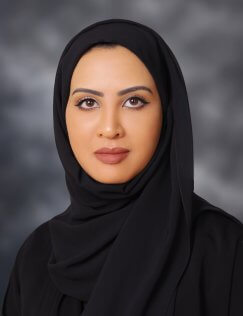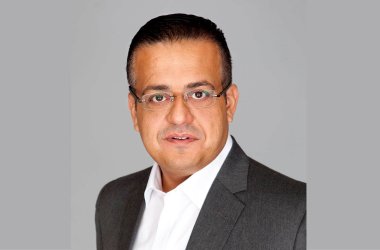Nitya Ravi spoke to Dr. Moza Suwaidan, Director of Strategy and Innovation at Digital Dubai, who is responsible for managing and delivering strategic projects in the field of digital transformation on the Emirate level, such as the Dubai Paperless Strategy, ICT City Infrastructure initiatives, and building strategic platforms such as Invest in Dubai and others.

Being ‘Digital First’ is the need of the hour in a post-pandemic world. What is your take on the same?
We can all agree that the pandemic has shown the world the importance of cities and countries being digitally advanced. Nations such as the UAE who have always been working towards the future have been most resilient during the pandemic due to how digitally strong the country is.
Talking about Dubai in particular, ever since His Highness Sheikh Mohammed Bin Rashid Al Maktoum, Prime Minister & Vice-President of the UAE and Ruler of Dubai launched the e-Government 20 years ago, our vision has been to embrace technology to its maximum potential to provide the highest standards of living and quality of life for the city’s citizens and residents.
Our journey began with automation of services and internal digitisation of administrative operations such as finance, procurement, human resources and more which in 2018 with the launch of the Dubai Paperless Strategy focused on comprehensive digital service, promoting integration, and achieving full digitisation of internal government operations.
With the success of implementing Dubai Paperless Strategy across the entire Dubai government, as of the end of 2021, we have eliminated the use of over 325 million sheets of paper equating to over AED 1 billion in cost savings, 13 million Hours in time savings and 39,000 trees in environmental savings per year.
Achieving so much in the past two decades, it was now time to evaluate on how we take the city’s digitisation to the next step. In June 2021, His Highness launched Digital Dubai. With our new identity, we not just want to digitise government services, but the entire city. We aim to build a globally leading digital economy. Over the past six months we have been hosting several stakeholder engagements workshops with the private sector, academia, startups and more to understand how we can build end-to-end digital experiences.
Though our primary goal for digitisation is better quality of life for our people, through Digital Dubai’s new mandate we also wish to reap the economic, social and environmental benefits for the city, making Dubai the digital capital of the world.
With companies undergoing digital transformation, what do you think will be the new challenges they have to face in a digital ecosystem?
From a city government perspective, to be a truly holistic digital city we must conquer several challenges. These include:
- Creating value: Investing in ICT must result in creating value and improving the quality of life of the citizens. Technology is a great tool to make people’s life simple and city experiences pleasant.
- Using data: To build end-to-end digital experiences for the city’s citizens and residents, we need to ensure that systems are interoperable and can speak to each other. For this we need collaborative efforts from both government sector and private sector to create data products that are of a value and utilised for decision making.
- Building digital skills: The biggest challenge the industry is currently facing across the globe is the lack of talent. Technology is advancing at a much rapid pace than our educational systems. Accelerating the youths’ digital skills across the city and working with educational institutes to embed courses and curriculums that will create talent ready for the future is of importance.
Which technology do you foresee being widely adapted in 2022?
As the government, we decide on technology investment based on the problem that we are trying to solve as opposed to the technology itself. Our efforts should result in solving a challenge and making quality of life in Dubai better.
That said, AI, IoT, Blockchain and Data Science are key technologies that continue to see wider scale implementations and are rapidly being adapted across the globe.
What has been the biggest challenge in this industry and how did you manage to overcome the same?
The biggest challenge in this industry is staying relevant with the rapid changes in technology, frameworks, and operating models. It requires a professional working in this industry to always keep up with the change, to stay aware and educated about potential opportunities and to continuously learn or un-learn sometimes.
What advice would you give aspiring young women entering this profession, or what advice do you have for women looking to grow either their own business or within the company they work for?
Whether you are a young woman who is just starting to build a career in the technology sector or building a business that is based on technology provision, there are numerous opportunities available for you to grab in all technology domains. Your mission should always be to find ways to create value using technology as a tool. It’s all about creating digital experiences that solve day to day life issues and elevate the quality of life of the citizens living in the city.
My second advice is to always stay ahead. This means that research and reading should be an integral part of what you do on regular basis. This allows you not only to obtain and grow your knowledge in different domains but also find opportunities where you can contribute.
My last advice is to listen. Listen to what your customers are telling you and get on the ground to truly understand their needs and expectations. Whether your customers are the public or other businesses they must be the cornerstone of design and development of technology powered products or services across all domains.





